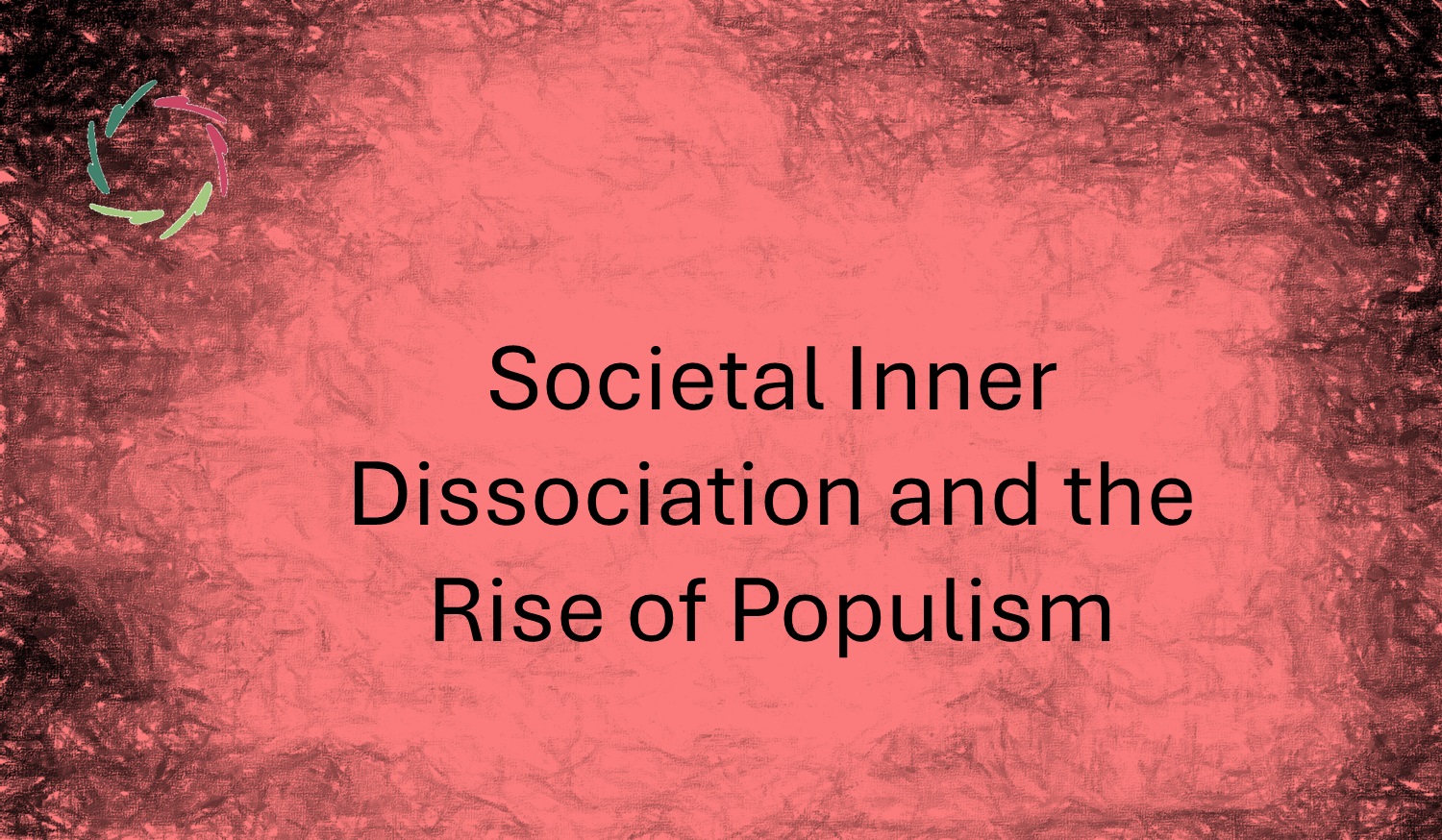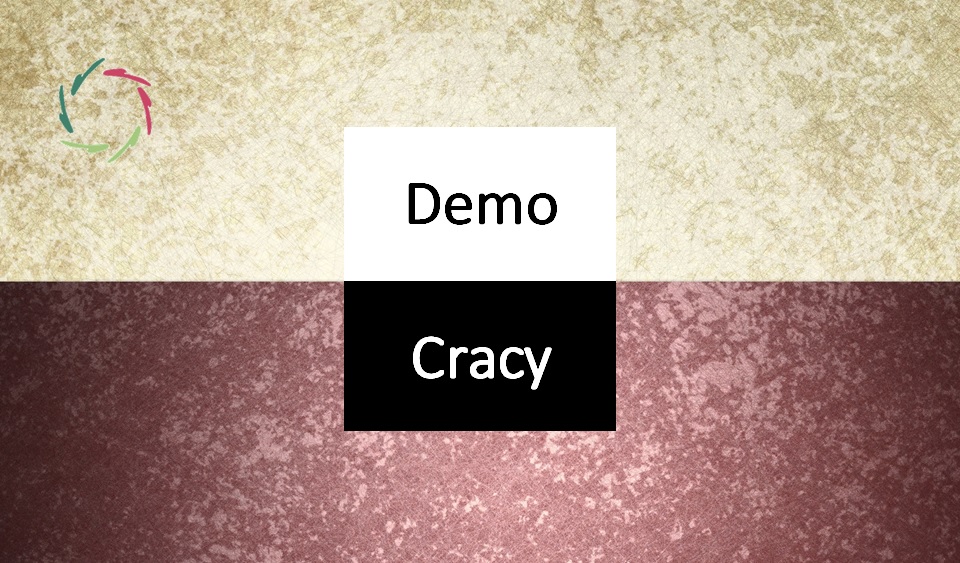Societal Inner Dissociation and the Rise of Populism

Populism is on the rise across the globe, often emerging in response to widespread feelings of alienation, dissatisfaction, and societal disconnection. At the heart of this phenomenon lies Societal Inner Dissociation (SID).
The present blog post delves into how SID fuels the rise of populism and how populist rhetoric exacerbates societal fragmentation. It also proposes ways to foster more inclusive and integrative political dialogue that addresses the underlying causes of SID. This blog is part of the *SID* series. Please read the primary blog of this series for a basic understanding of Societal Inner Dissociation (SID).
The role of SID in fueling populism
SID creates a pervasive sense of alienation within societies, where individuals feel increasingly disconnected from their communities, their leaders, and even themselves. This alienation is fertile ground for populist movements, which promise to restore power to ‘the people’ by challenging the established elites who are perceived as out of touch with the everyday struggles of the population. Populism appeals to those who feel neglected and unheard, offering them a voice and a sense of agency in a system that seems rigged against them.
In a complex and rapidly changing world, SID exacerbates feelings of overwhelm and confusion. Populist leaders exploit these emotions by offering simplistic, emotionally appealing solutions to the nuanced problems facing society. These solutions often come in the form of catchy slogans or promises to ‘fix’ the system. While these solutions may provide temporary comfort, they often fail to address the root causes of societal issues, leading to further frustration and dissociation.
Populist rhetoric and the deepening of societal divides
Populist rhetoric often frames societal issues in terms of a battle between ‘us’ (the true people) and ‘them’ (the corrupt elites or outsiders). This binary perspective simplifies complex societal dynamics, encouraging people to see the world in black-and-white terms. By positioning themselves as the champions of ‘the people’ against a perceived enemy, populist leaders deepen existing divisions within society. This rhetoric not only alienates those who are labeled as ’them’ but also strengthens the dissociation felt by individuals who are drawn to these movements as they become more entrenched in a narrow, exclusionary worldview.
A common tactic in populist rhetoric is the use of scapegoating ― blaming specific groups for the problems facing society. Whether it’s immigrants, political elites, or minority communities, scapegoating directs societal frustrations towards convenient targets, further fragmenting society and exacerbating SID. This blame game creates a hostile environment where people are pitted against each other rather than working together to find common solutions. As societal cohesion breaks down, the sense of community and shared purpose that binds people together is eroded, deepening the dissociation that populism both exploits and perpetuates.
The psychological appeal of populism in SID-afflicted societies
Populism taps into the deep emotional discontent caused by SID, offering a narrative that resonates with those who feel marginalized or powerless. For individuals struggling with dissociation, populism provides a sense of belonging and identity, offering a clear and compelling story about who they are and who is to blame for their struggles. This emotional appeal is powerful, as it fills the void left by the erosion of traditional community structures and shared values.
SID contributes to the erosion of trust in traditional institutions, such as government, media, and the judiciary. As individuals feel increasingly disconnected from these institutions, they become more susceptible to populist narratives that promise to dismantle the existing order and return power to the people. Populist leaders capitalize on this distrust, positioning themselves as outsiders who will restore justice and fairness. In doing so, they often undermine the very democratic norms and institutions that are essential for a functioning society, deepening SID and creating a cycle of instability and disconnection.
Consequences of populism for societal cohesion
The rise of populism typically leads to increased polarization within societies as the ‘us vs. them’ rhetoric takes hold. As political and social divides deepen, it becomes increasingly difficult to find common ground or engage in constructive dialogue. This polarization fosters an environment of conflict and hostility. This dynamic further entrenches SID as individuals retreat into their ideological silos.
Populist leaders seek to consolidate power by undermining the checks and balances that are essential for a healthy democracy. This can have long-term consequences, including the erosion of the rule of law, the suppression of dissent, and the centralization of power in the hands of a few. This can lead to a vicious cycle of disillusionment, disengagement, and further support for populist movements that promise radical change.
Strategies for addressing SID to mitigate the rise of populism
One of the most effective ways to mitigate the rise of populism is to create a more inclusive political dialogue that addresses the root causes of SID. This involves moving beyond the simplistic, emotionally charged narratives of populism and engaging in conversations that are nuanced, empathic, and respectful. By fostering a dialogue that encourages understanding and mutual respect, societies can bridge divides and reduce the appeal of populist rhetoric.
Rebuilding trust in political and social institutions is crucial for reducing SID and countering populism. This can be achieved through increased transparency, accountability, and responsiveness to the needs of all citizens. Institutions must demonstrate that they can address the concerns and aspirations of the populace in a fair and equitable manner. This restoration of trust is essential for preventing the further erosion of democratic norms and for promoting societal cohesion.
Encouraging civic engagement and participation is another key strategy for addressing SID and mitigating the rise of populism. When individuals feel empowered to take an active role in the political process, they are more likely to feel connected to their communities and to the broader society. This fosters a sense of agency and belonging that counters the appeal of populist movements.
Case studies
Several countries have experienced the rise of populism in response to SID, each with unique outcomes. For example, the rise of right-wing populism in Europe has often been fueled by concerns over immigration and national identity, while left-wing populism in Latin America has focused on economic inequality and corruption. In both cases, populist leaders have capitalized on feelings of alienation and dissatisfaction, using divisive rhetoric to mobilize support. The outcomes of these movements vary, with some leading to significant political change and others resulting in deepened societal divides and weakened democratic institutions.
There are also examples of initiatives that have successfully countered the rise of populism by addressing SID and promoting social cohesion. For instance, in countries like Canada and New Zealand, efforts to promote inclusive dialogue, rebuild trust in institutions, and encourage civic engagement have helped to prevent the spread of populist movements. These initiatives demonstrate the importance of proactive, community-focused approaches to mitigating the effects of SID and fostering a more resilient, cohesive society.
In short
Societal Inner Dissociation plays a significant role in fueling the rise of populism, as it creates conditions of alienation, dissatisfaction, and disconnection that populist movements exploit. While populism offers simple solutions to complex problems, its rhetoric often deepens societal divides and weakens democratic norms.
To counteract this trend, it is essential to address the underlying causes of SID by fostering inclusive political dialogue, rebuilding trust in institutions, and promoting civic engagement. By doing so, societies can mitigate the rise of populism and create more cohesive, resilient communities that can address their challenges in a constructive and inclusive manner.


